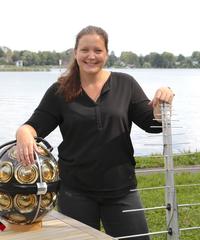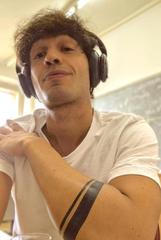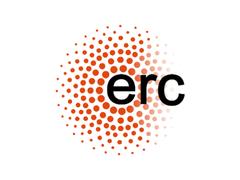URL: https://www.desy.de/news/news_search/index_eng.html
Breadcrumb Navigation
DESY News: European Research Council funds search for cosmic neutrinos and Dark Matter
News
News from the DESY research centre
European Research Council funds search for cosmic neutrinos and Dark Matter
The European Research Council ERC is funding the search for extremely energetic cosmic particles as well as ultralight candidates for the mysterious dark matter with a total of three million euros. DESY researcher Anna Nelles, who is also a professor at Friedrich Alexander University Erlangen-Nuremberg, and Andrea Caputo, who is currently working at the European Particle Research Center CERN near Geneva, have successfully applied for so-called ERC Starting Grants with DESY as host institution. Both will receive 1.5 million euros each over the next five years for their research projects. “We congratulate both applicants and are glad to be available as host institution for these ambitious research projects,” says the chairman of the DESY board of directors, Helmut Dosch.

Anna Nelles with two types of neutrino detectors: RNO-G's antenna (right) and an optical module (left). Credit: DESY
“The discovery of neutrinos with extreme energies promises new insights in both astrophysics and particle physics at energies far beyond those achievable with terrestrial particle accelerators,” Nelles explains. “With such observations, we hope to reveal new sources of extremely energetic cosmic rays and better understand the propagation of these particles in space.” The Radio Neutrino Observatory - Greenland or RNO-G will be the first large facility of its kind and is expected to expand to 35 stations by 2026. Construction and operation are be led by Nelles and her colleagues from the United States and Belgium.

Andrea Caputo. Credit: Andrea Caputo
In search of an answer to this question, the project is studying the impact of hypothetical light Dark Matter particles on a series of astrophysical an cosmological phenomena in order to identify a possible signature of these particles. “Our hope is to discover Dark Matter or at least unveil some of the mysteries of the 'dark sector',” Caputo says.
In total, the ERC has awarded 400 Starting Grants totaling 628 million euros to young researchers from across Europe. The funding is part of the EU's Horizon Europe program. Almost 2700 scientists applied for the grants. Among the successful applicants, the proportion of women is particularly high this year at 43 percent, according to the ERC.
“It is part of our mission to give early-career talent the independence to pursue ambitious curiosity-driven research that can shape our future,” emphasises ERC President Maria Leptin. “In this latest round of Starting Grants, we saw one of the highest shares of female grantees to date, which I hope will continue to rise. Congratulations to all winners and good luck on your path to discovery.”




